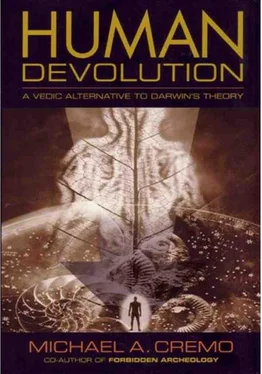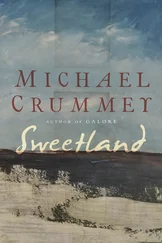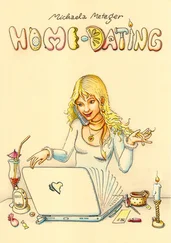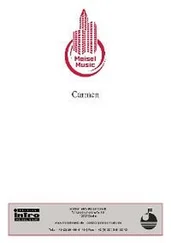Michael Cremo - Human Devolution - A Vedic Alternative To Darwin's Theory
Здесь есть возможность читать онлайн «Michael Cremo - Human Devolution - A Vedic Alternative To Darwin's Theory» весь текст электронной книги совершенно бесплатно (целиком полную версию без сокращений). В некоторых случаях можно слушать аудио, скачать через торрент в формате fb2 и присутствует краткое содержание. Год выпуска: 2003, ISBN: 2003, Издательство: Torchlight Publishing, Жанр: Старинная литература, на английском языке. Описание произведения, (предисловие) а так же отзывы посетителей доступны на портале библиотеки ЛибКат.
- Название:Human Devolution: A Vedic Alternative To Darwin's Theory
- Автор:
- Издательство:Torchlight Publishing
- Жанр:
- Год:2003
- ISBN:9780892133345
- Рейтинг книги:4 / 5. Голосов: 1
-
Избранное:Добавить в избранное
- Отзывы:
-
Ваша оценка:
- 80
- 1
- 2
- 3
- 4
- 5
Human Devolution: A Vedic Alternative To Darwin's Theory: краткое содержание, описание и аннотация
Предлагаем к чтению аннотацию, описание, краткое содержание или предисловие (зависит от того, что написал сам автор книги «Human Devolution: A Vedic Alternative To Darwin's Theory»). Если вы не нашли необходимую информацию о книге — напишите в комментариях, мы постараемся отыскать её.
Human Devolution: A Vedic Alternative To Darwin's Theory — читать онлайн бесплатно полную книгу (весь текст) целиком
Ниже представлен текст книги, разбитый по страницам. Система сохранения места последней прочитанной страницы, позволяет с удобством читать онлайн бесплатно книгу «Human Devolution: A Vedic Alternative To Darwin's Theory», без необходимости каждый раз заново искать на чём Вы остановились. Поставьте закладку, и сможете в любой момент перейти на страницу, на которой закончили чтение.
Интервал:
Закладка:
The chi is, however, different from the real self. According to Ogbuene (1999, p. 112), the unchanging spirit self is called mmuo —the spirit that activates all living things. For the Igbo, says Ogbuene (1999, p. 112), “Reality is the hierarchy of Mmuos—spirits, which all originate from Chukwu, the ultimate Mmuo-Spirit.” Departed ancestors are called alammuo —spirits alive in the spirit world, but dead in this world (Ogbuene 1999, p. 112). But such spirits can return to this world. Ogbuene (1999, p. 116) says: “Parents and relatives who knew a spirit in a former existence will recognize that spirit in a new incarnation and can recall the events of that spirit’s life. We believe that many children are born resembling their past spirits closely.”
The body that the soul inhabits is called aru (Ogbuene 1999, p. 164). There is also another element connected with a living thing— obi , which Ogbuene (1999, p. 164) characterizes as breath, and which Meek (1930, p. 56) characterizes as a person’s “vital essence.” Ogbuene (1999, p. 164) also recognized an element called eke , which he calls “the ancestral guardian.” mmuo, chi, aru, obi, and eke might be compared respectively to the Vedic concepts of atma (individual spirit soul), mana (subtle material body), deha (gross physical body), prana (vital air), and paramatma (the accompanying Supersoul).
The Igbo feel a close connection with their departed ancestors. The living behave as if the dead were still with them. Victor Chikenzie Uchendu (1965, p. 102) writes about the spirits of the dead: “They are reprimanded for failing in their duty to their children, by closing their eyes to the depredations of evil spirits which cause death in the family, cause crop failure, and make trade unprofitable.” In simple household rituals, they are offered ordinary foods. According to Igbo beliefs, their ancestors sometimes reincarnate again in their same families. Uchendu (1965, p. 102) notes, “Belief in reincarnation [rebirth in human form] gives the Igbo hope of realizing their frustrated status goals in the next cycle of life. Transmigration [reincarnation into nonhuman species], on the other hand, is regarded as the greatest possible punishment for the incestuous, the murderer, the witch, and the sorcerer. ‘ lsdigh uwa na mmadu’ ‘May you not reincarnate in the human form’—is a great curse for the Igbo.” This corresponds with Vedic concepts of reincarnation, in which those souls who have accumulated bad karma reincarnate in lower forms, such as those of animals.
Among the Igbo, certain animals are sacred or taboo for certain kin groups. For example, at Lokpanta the leopard is sacred to the Um-Ago kinship group. Um-Ago means “the children of leopards.” The Um-Ago do not kill leopards or eat their flesh, believing that if anyone did so, that person would die untimely. Members of the Um-Ago are said to possess the ability to become leopards and act against enemies by killing their livestock (Meek 1970, p. 252).
The Igbo also have a belief in shape-changing children. If a child cannot walk or crawl by the age of three, the Igbo conclude that it is a creature that has come from a river or stream. Among one group of Igbo, the child is taken to a nearby river, along with an offering of a plate of mashed yams, whereupon, it is said, the child turns into a python and glides into the water. In another Igbo group, a ceremony for such a child takes place in the house. Sometimes the child turns into a snake, and in that case it is killed. Sometimes the child turns into a monkey. Northcote W. Thomas wrote in his anthropological report on the Igbo (1914, p. 29): “A changeling is known as nwa di mwo, and I have been seriously assured by more than one person that they have actually seen the transformation.”
The gods of the Igbo are described as follows by Charles Kingsley Meek (1970, p. 20): “Firstly, there is a pantheon of high gods, headed by Chuku or Chineke the Supreme Spirit, Anyanu (the Sun), Igwe (the Sky), Amadi-Oha (Lightning), and Ala (the Earth deity). Then there are innumerable minor deities: water and agricultural godlings; spirits which are the personification of fortune, destiny, wealth, strength, divination, and evil; spirits which are the counterparts of living human beings; and finally the ancestors, who control the fortunes of their living descendants. The Supreme Being, or it might be more correct to say the Supreme Spirit or World-Oversoul, is known as Chuku, a word which is a contraction of Chi=Spirit and uku=great. . . . In his creative aspect he is known as Chineke, or Chukwoke, or Chi-Okike.”
Ogbuene (1999, pp. 113–114), like Meek, makes a distinction between Chukwu or Chuku (“God, the big Spirit . . . the first ancestor . . . the self existent Being and wellspring of all that exists”) and Chineke (“God the creator”). In the Vedic cosmology there is a similar distinction between Krishna, the Supreme Personality of Godhead, known as the source of everything, and the creator god Brahma, who, using the ingredients supplied by Krishna, manifests the earth and other celestial bodies in the universe. Okpewho (1998, p. 90) believes that the traditional God concept of today’s Igbo has been to some extent influenced by Christian missionaries, but even Okpewho accepts there is some kind of “supreme divinity” and gives traditional accounts of humans meeting with a personal God (1998, pp. 73–74). As Okpewho puts it (1998, p. 74): “It is significant . . . that the Ijo [Igbo] imagination can conceive of an encounter with the supreme divinity.” Ogbuene (1999, p. 108) states that “Chukwu . . . is a God who acts and speaks, from whom help and assistance is sought in sacrifices.” At the same time he is indescribable, and is therefore sometimes called Ama-ama-Amasi Amasi, “One who is known but can never be fully known.” Ogbuene (1999, p. 108) says, “This is different from saying that Chukwu could be anything at all, or nothing. It is rather saying there is a reality which cannot be described; but towards which His actions point.”
Of Chukwu, Meek (1970, p. 20) says: “He is the author of heaven and earth, he sends the rain, makes the crops grow, and is the source from which men derive their chi or accompanying soul. He is the father of the gods, for some at least of the gods are said to be his ‘sons’. But he is a distant deity of vague personality, and sacrifice is seldom offered to him directly. Yet he is regarded as the ultimate recipient of all sacrifices. Thus, if sacrifice is offered to Anyanu, the officiant asks Anyanu to accept the sacrifice and bear it to Chuku.”
This relationship of the minor Igbo gods to the high god Chuku is similar to the relationship among gods found in our template Vedic cosmology. In the Bhagavad Gita (9. 23), Krishna, the Supreme God, says, “Those who are devotees of other gods and who worship them with faith actually worship only Me, O son of Kunti, but they do so in a wrong way.”
According to Ogbuene (1999, p. 109), the various gods and creatures, including Chineke, are seen as simultaneously one with and different from Chukwu: “The Igbo recognizes that Chukwu is one, vast, and that He informs and unifies every other being. The so-called gods or spirits are not themselves Chukwu, but simply reflect certain aspects of His principles, ways and consciousness.” This is remarkably similar to the doctrine of inconceivable simultaneous oneness and difference ( acintyabhedaabeda-tattva ), characteristic of the school of Vedic philosophical thought to which I adhere (Gaudiya Vaishnavism). The teachers of this school explain that just as the rays of the sun are simultaneously one with and different from the sun, all souls are simultaneously one with and different from the Supreme Soul.
Читать дальшеИнтервал:
Закладка:
Похожие книги на «Human Devolution: A Vedic Alternative To Darwin's Theory»
Представляем Вашему вниманию похожие книги на «Human Devolution: A Vedic Alternative To Darwin's Theory» списком для выбора. Мы отобрали схожую по названию и смыслу литературу в надежде предоставить читателям больше вариантов отыскать новые, интересные, ещё непрочитанные произведения.
Обсуждение, отзывы о книге «Human Devolution: A Vedic Alternative To Darwin's Theory» и просто собственные мнения читателей. Оставьте ваши комментарии, напишите, что Вы думаете о произведении, его смысле или главных героях. Укажите что конкретно понравилось, а что нет, и почему Вы так считаете.












